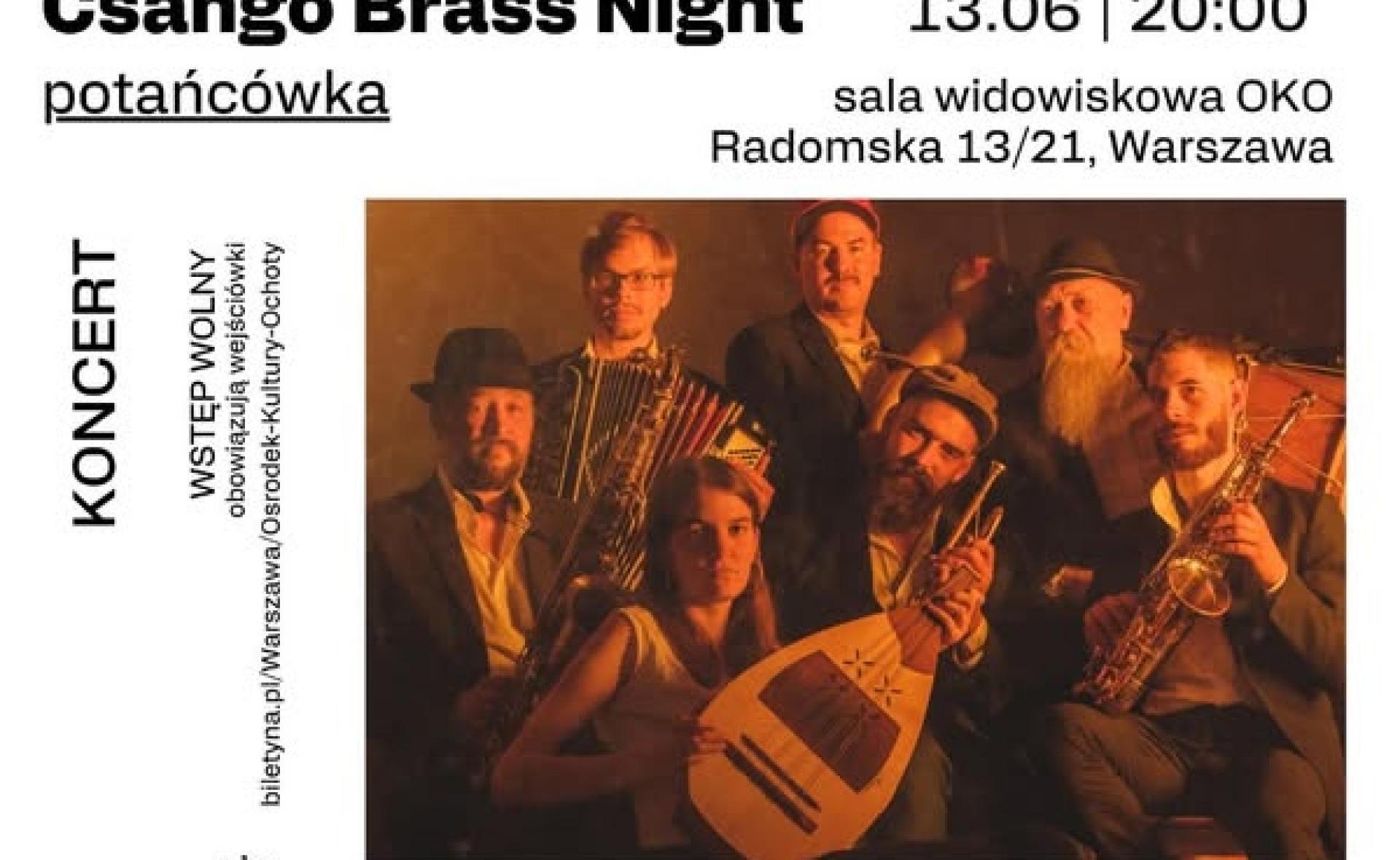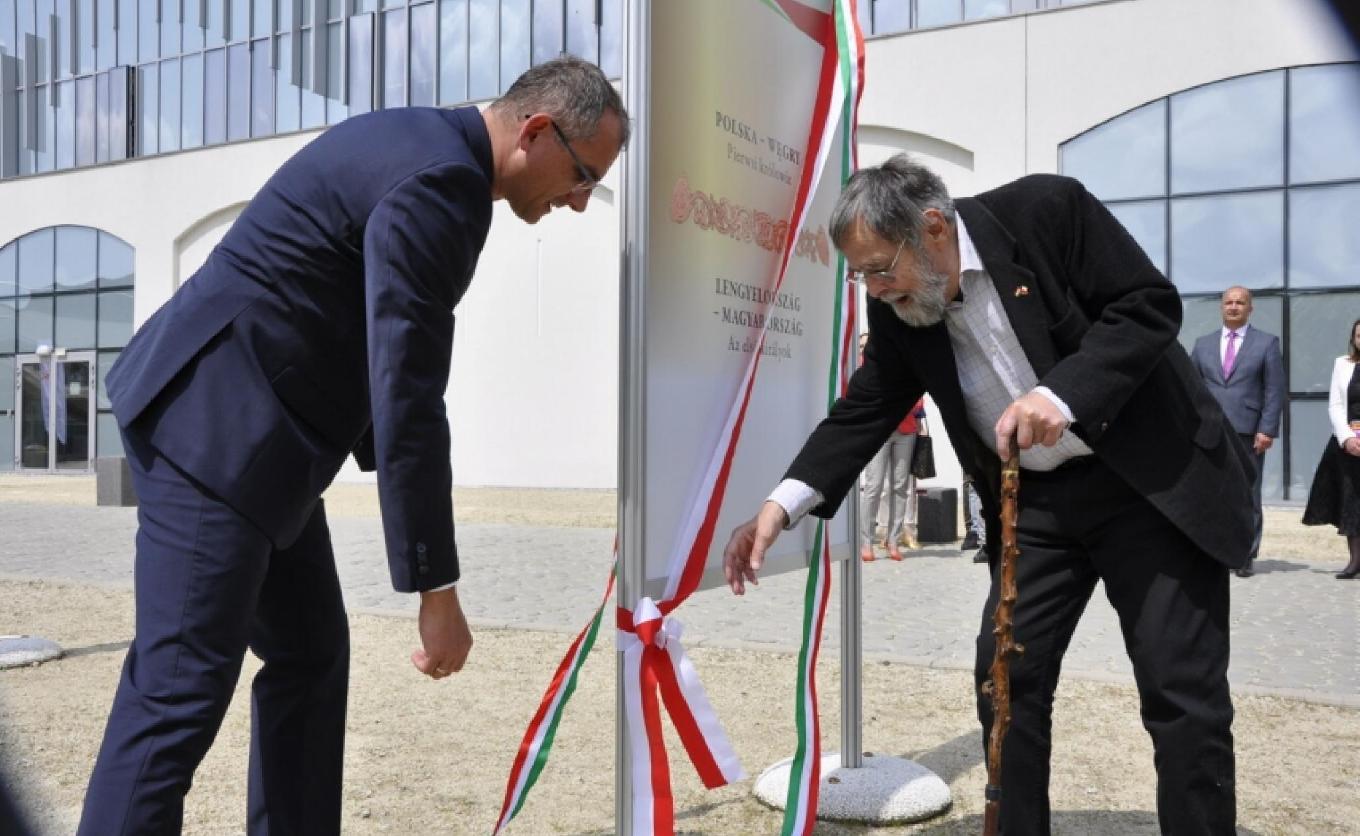
Summer Program Extravaganza Across Poland
The Liszt Institute Warsaw has organized a wide array of Hungarian cultural programs across Poland. They once again arranged a tour for the Rézeleje Brass Band, who had already made a highly successful debut in Poland earlier this spring. In collaboration with the Museum of the First Piasts and other Polish partners, the Institute also co-organized an exhibition dedicated to the first crowned rulers of our two nations. As part of the Institute’s initiatives, the Borsa ensemble, led by Katica Manninger, performed at a festival held in the late medieval castle of Liw, enchanting the audience on Midsummer Night with music and dance around a traditional bonfire. In connection with the Polish translation of the diary of Olga Galló, a former prisoner of the Gross-Rosen concentration camp, the Institute organized a commemorative event. As part of the program, Andrea Fullajtár, the actress and granddaughter of Olga Galló, performed excerpts from a monodrama based on the diary at the memorial site’s visitor center.
The Rézeleje Brass Band, known for their vibrant performances of Balkan and Csángó folk music, returned to Poland for the second time in a short period. Following their successful spring tour, they were invited back for a three-stop concert tour organized by the Liszt Institute Warsaw and other host institutes. The ensemble performed in the capital city, the Beskid Mountains and near a mountain pass in the Carpathians. The tour began on June 13 in Warsaw, where the Ochota District Cultural Center hosted a sold-out concert. Including an intermission and a lively dance house afterwards, the event lasted nearly three and a half hours. The second stop took place at the Grajdół Festival, known for its unique atmosphere and status as Poland’s highest-altitude cultural festival. The venue, located atop a mountain near Krynica in Lesser Poland, sits at 900 meters above sea level. Rézeleje was one of the festival’s main attractions. The third concert was held in Dukla, a historic town once located on the former Hungarian-Polish border. The performance drew a large and enthusiastic audience this time as well.
Located in the village of Dziekanowice near Gniezno, the Museum of the First Piasts preserves the remains of the fortified settlement of Ostrów Lednicki — one of the cradles of Polish statehood — including the baptismal chapel of Poland’s first crowned ruler, Bolesław the Brave. As 2025 marks the 1000th anniversary of his coronation in 1025, the Liszt Institute Warsaw, in collaboration with the Museum of the First Piasts and other Polish partners, organized a special exhibition dedicated to the first crowned monarchs of Poland and Hungary. The exhibition premiered on June 17, 2025, at the museum in Dziekanowice, featuring opening remarks by Museum Director Andrzej Grajewski, Gáspár Keresztes, Director of the Liszt Institute, Ákos Engelmayer, former ambassador, and László Tapolcai, historian and one of the exhibition’s authors. A printed exhibition catalog was also produced, and the display will travel to Esztergom during the summer, where it will be presented with the support of Hungarian partners — the Castle Museum of the Hungarian National Museum and the Polish Institute in Budapest.
The Numinosum Foundation — dedicated to the promotion of traditional and world music — helds its annual summer festival for the umpteenth time, continuing its long-standing collaboration with the Liszt Institute Warsaw. Thanks to this fruitful partnership, once again a Hungarian headliner could take the stage at the event. The festival took place in the late-medieval castle of Liw, a village located about an hour’s drive from the Polish capital, and coincided with the summer solstice. On the evening of June 22, Midsummer Night, the Borsa ensemble, led by Katica Manninger, set the audience dancing around the traditional bonfire, in true celebration of the magical night.
The museum at the former Gross-Rosen concentration camp in Lower Silesia had previously committed to publishing the memoirs of victims and survivors who passed through the camp and its subcamps. Thanks to the efforts of the Liszt Institute Warsaw and literary translator Michalina Oziembłowska, the Polish translation of the diary of Olga Galló, a former prisoner of the camp, was published — coinciding with the release of the complete Hungarian edition (Ten Months in Babylon, Magvető, 2025). To mark the occasion, a commemorative event was held at the visitor center established on the former camp grounds, featuring a performance by Andrea Fullajtár, actress and granddaughter of Olga Galló. She presented excerpts from a monodrama based on the diary. The event was attended by Gáspár Keresztes, Director of the Liszt Institute, Tibor Gerencsér, Consul General in Kraków, and Noémi Nagy, Vice-Consul in Wrocław. Following the performance, Dr. Dorota Sula, a historian and staff member at the museum, held a conversation with Andrea Fullajtár. The Polish audience and representatives of local museums received the event with warmth and deep appreciation, and discussions about future joint projects and events have already begun.

